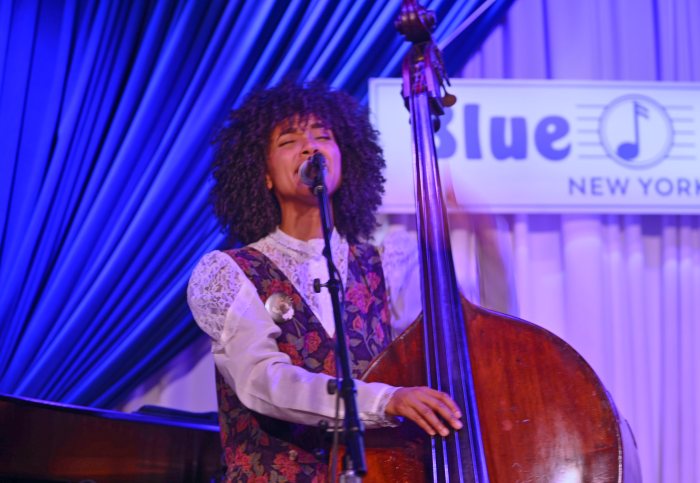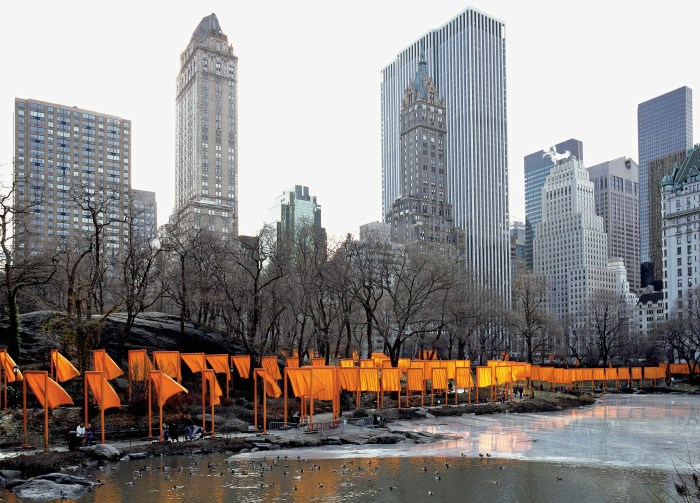You probably know Ricki Lake best as a ’90s staple in living rooms across America thanks to her talk show “Ricki Lake.” For more than a decade, the actress and TV host was the woman who put a spotlight on the lives of individuals who wanted to speak their truth. In 2001, after experiencing 9/11 from her apartment in the West Village, she took her curiosity for people and hunger for storytelling and turned the next stage of her life into a fulfilling producing career, which includes 2008’s “The Business of Being Born,” a documentary which unmasked the stigma behind home births and traditional birthing experiences in hospitals.
Ten years later, she’s presenting her third documentary, “Weed the People.” The producer digs deep into the effectiveness of medical marijuana and the gatekeepers around its restriction. By documenting families whose children have different forms of cancer — but who are all fighting for their lives — Lake puts forth an eye-opening documentary that might one day save lives.
Ricki Lake spoke with amNewYork about the film, out Friday.
What do you enjoy the most about producing?
It goes back to my talk show days. I love people. I’m so interested in dynamics, relationships, and why people do what they do. With these documentaries, it’s so intimate and I just love the medium. The timing couldn’t be more perfect for this film. The cannabis industry has changed so much. We’ve been documenting kids with cancer for five and a half years and seeing what cannabis does for them. It’s meaningful content.
What made making this documentary personal to you?
My beloved husband, Christian Evans, who passed away last year from mental illness and suicide — this was his medicine. This was his passion. He was suffering from a lot of different ailments, some were physical and some were learning issues like ADD, dyslexia, and also anxiety, insomnia — most things that people can relate to. He was bed bound a lot with migraines. He would go on the internet and explore. At the same time this little girl came into my life who was suffering from this disease called NF1 — she was my fan from “Dancing With the Stars.” She touched my heart and next thing you know I moved her and her family into my home for six weeks and took her on this journey to find options for her because chemotherapy was really ruining her system. After my husband passed away this film became his legacy.
Does being well-known in the industry help getting projects off the ground?
Oh, it absolutely does. The level of celebrity is unique in that I hosted this show for so many years, and in some cases I was in people’s living rooms twice a day so there’s an intimacy, a likability, a trust factor, and a familiarity with me. So, it’s easy to make these provocative movies and offer them to an audience because there’s already a level of trust. I don’t have an agenda. I’m not in the cannabis industry. It’s really being of service to help others.
This issue is heavily politicized and the film does a good job of showing the left versus the right divide on CBD oil used as treatment. How did you decide how much of that you wanted to highlight?
We wanted to show it as it is. One thing that really helped the film, particularly when we’re presenting it to a conservative audience that maybe needs to be deprogrammed about what cannabis is, the fact that these families are very religious and very spiritual makes it easier for them to digest. They’re seeing people on screen who are like them. Again, that was luck of the draw because these are the families we got. It wasn’t casting. Baby Sophie’s mother was a big fan of "The Business of Being Born," so she knew we would have reverence in telling this story.
Did your opinion on "Big Pharma" change while making the film?
It’s funny because I’m the daughter of a pharmacist. So I was raised [with it around me]. When you had a headache you take a Tylenol and three codeine. It was normal for me to put all these things in my body — including birth control. We’re making another documentary about hormonal birth control [called “Sweetening the Pill”] that’s going to be taking on big pharma in a whole other way.
What surprised you most during the production of “Weed the People”?
The results. I don’t want to give it away but that one boy was sent home to die with 20 tumors in his lungs and to see where he is now. His story is unbelievable. It does have emotional moments and while it’s hard to watch these children who are suffering but you can see the outcome and it’s really important. These images are really important for people to see that this could be their reality.





































